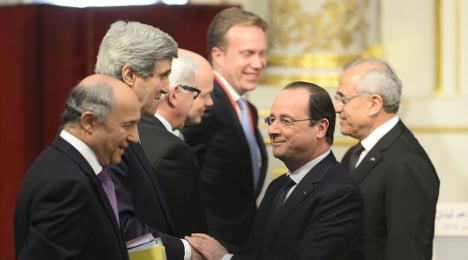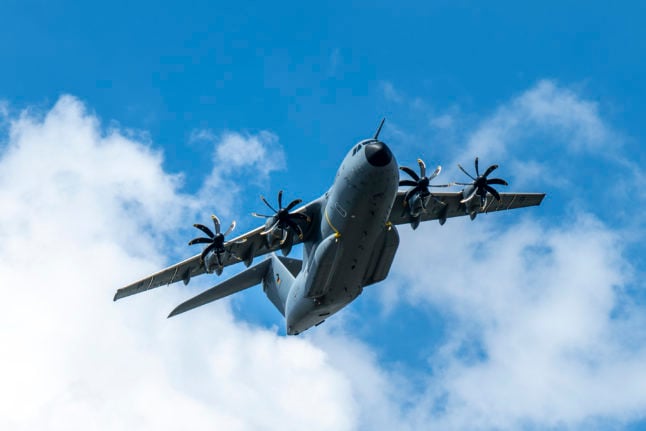Western hopes of engineering direct talks between Russia and Ukraine aimed at resolving the crisis in the Crimea hung in the balance on Wednesday.
An official at Ukraine's embassy in the French capital said the country's acting foreign minister had left for the airport having failed to secure a hoped-for meeting with his Russian counterpart Sergei Lavrov.
But that was immediately denied by US officials who said they were still hopeful the mooted meeting could take place before the end of the day.
"The Ukrainian foreign minister has not left and is considering remaining in Paris for further conversations," a State Department official said, ahead of a second meeting of the day between Lavrov and US Secretary of State John Kerry. "We are on our way to see Lavrov now.
The United States, Britain, France and Germany had earlier urged Lavrov to agree to face-to-face talks with Ukraine's Andriy Deshchytsya as a signal of its willingness to de-escalate the crisis.
Kerry, who has worked closely with Lavrov on Syria, had a first one-on-one discussion with the Russian after similar talks involving the foreign ministers of Britain, France and Germany, a senior State Department official said.
It was the first time Kerry and Lavrov had met since a pro-Moscow government in Ukraine was ousted, prompting the de facto takeover of the Crimean peninsula by pro-Moscow forces.
British Foreign Secretary William Hague said European Union governments would have no option but to consider sanctions against Russia if it did not agree to enter dialogue with a Ukrainian government that Moscow does not recognise.
EU leaders are due to discuss the Ukraine situation at an emergency summit in Brussels on Thursday.
"I think what happens at the European Council will partly be determined by Russia's willingness to talk to Ukraine today," Hague said. "This is the test for Russia today."
The government currently in power in Ukraine took power on February 22 after Moscow-backed president Viktor Yanukovych fled Kiev following three months of pro-European Union protests which left nearly 100 dead.
Hague said Yanukovych's departure legitimised the administration that has filled the gap and urged Russia to accept it as a negotiating partner.



 Please whitelist us to continue reading.
Please whitelist us to continue reading.
Member comments